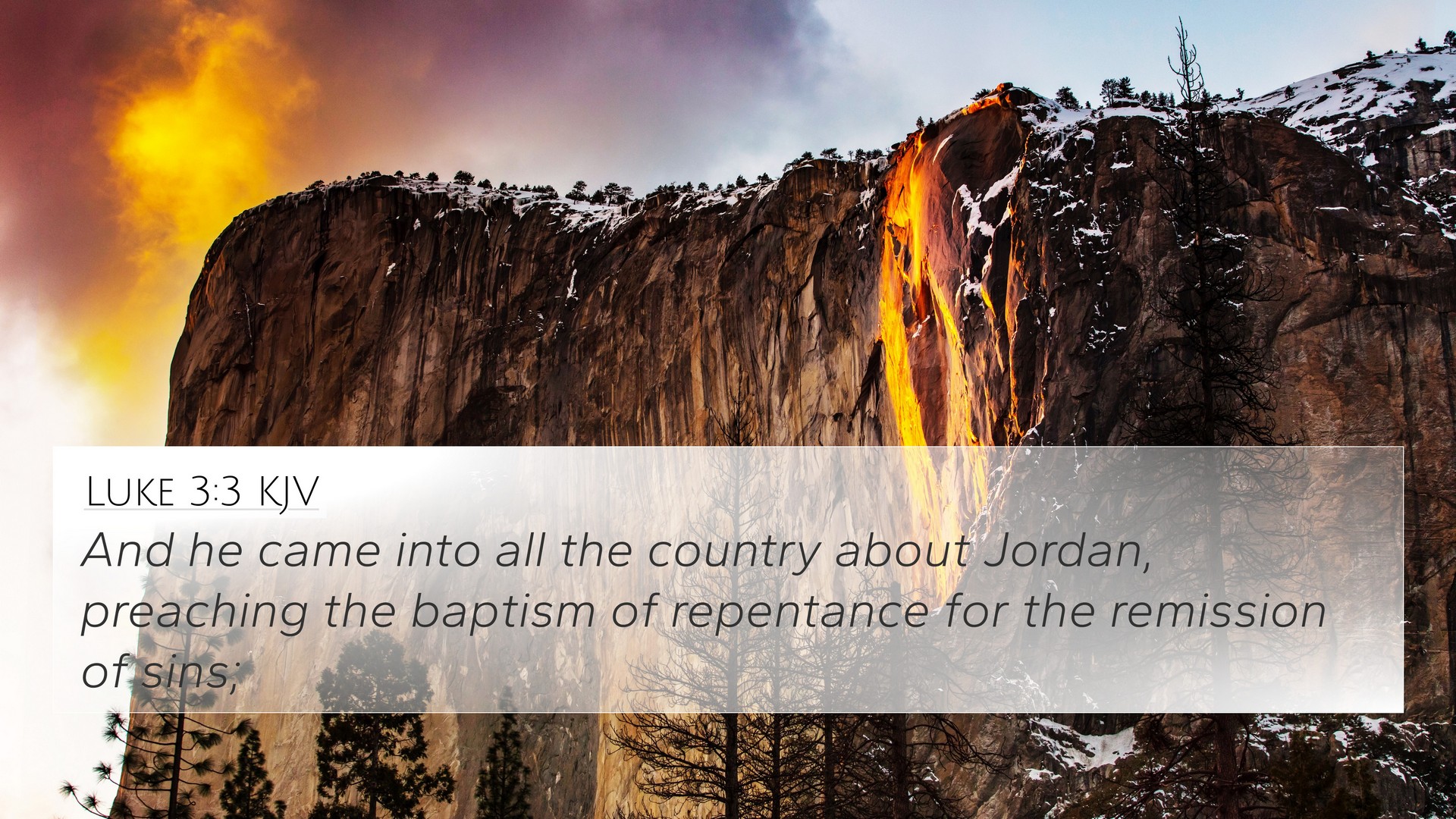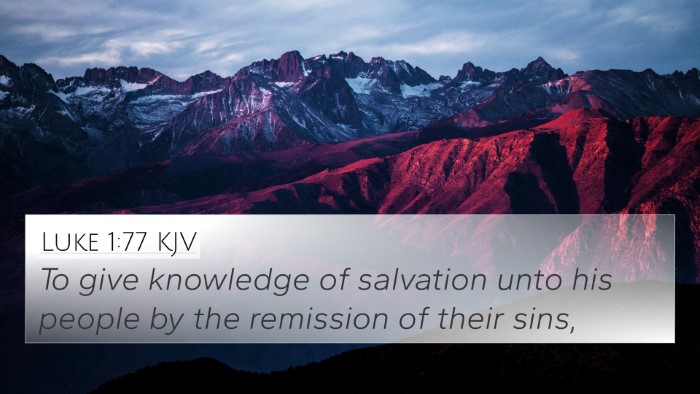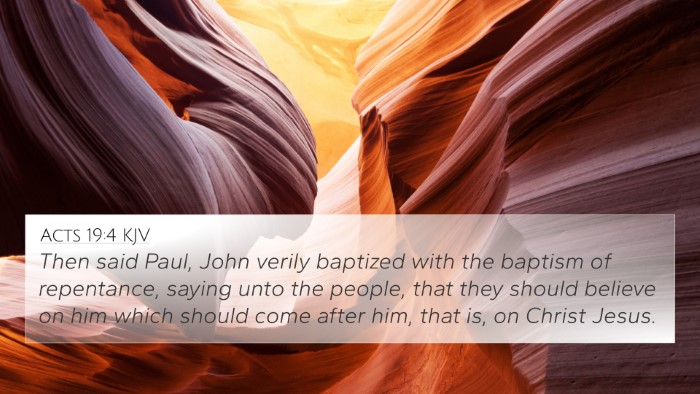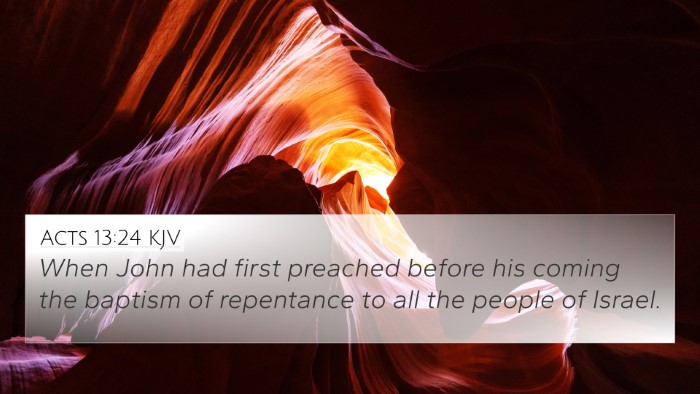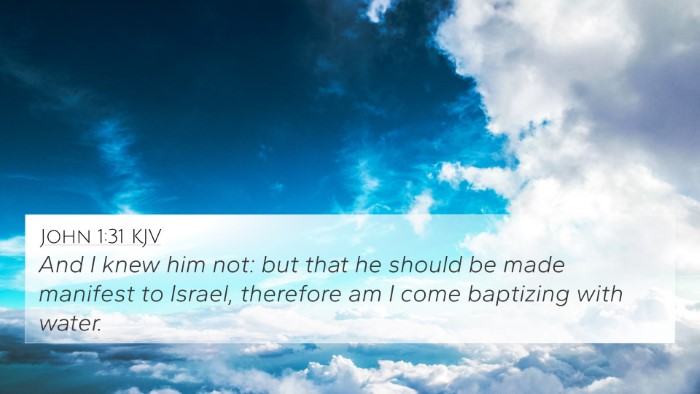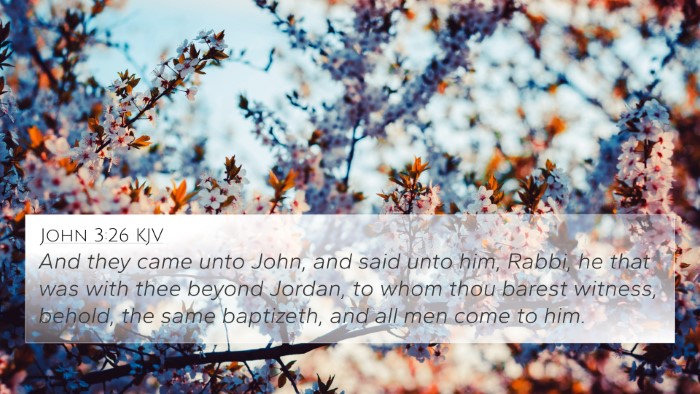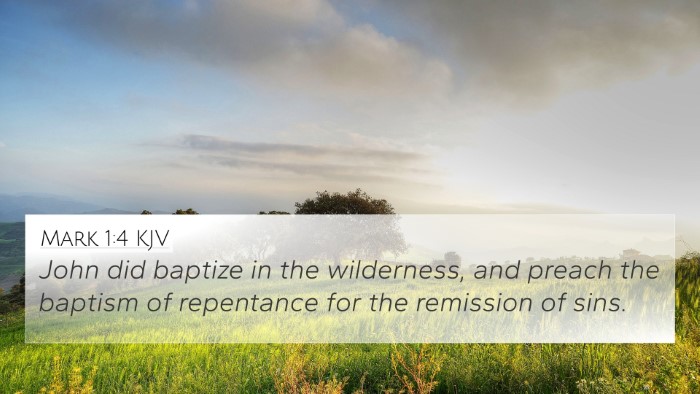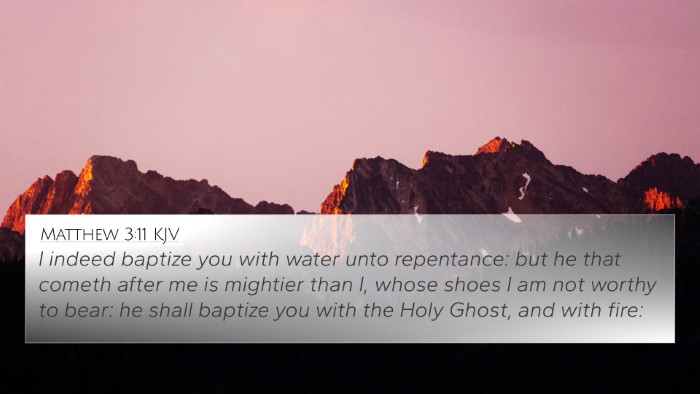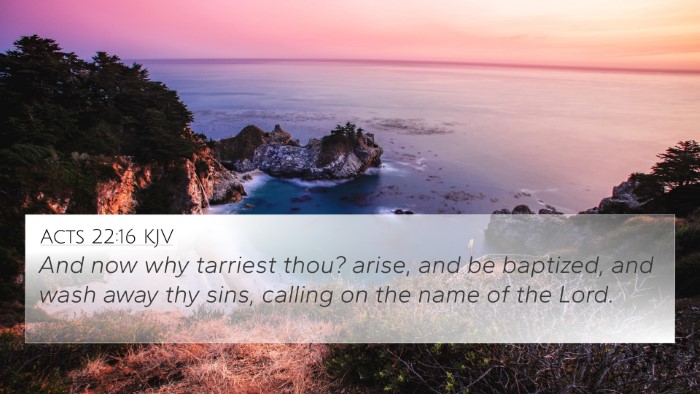Understanding Luke 3:3
Luke 3:3 states: “And he came into all the country about Jordan, preaching the baptism of repentance for the remission of sins.” This verse serves as an introduction to the ministry of John the Baptist and encapsulates key themes of repentance and forgiveness that resonate throughout the Scriptures.
Meaning and Interpretation
The significance of Luke 3:3 can be understood through a synthesis of insights from public domain commentaries, including those by Matthew Henry, Albert Barnes, and Adam Clarke. They highlight several essential aspects of this passage.
Contextual Background
Luke paints a vivid picture of John the Baptist's ministry taking place in the wilderness, symbolizing a return to the roots of faith, akin to the prophetic tradition of Israel. The wilderness is often seen as a place of divine revelation and preparation.
Preaching the Baptism of Repentance
John's message, noted as the “baptism of repentance,” emphasizes a transformational process where individuals are called to turn away from sin. John’s ministry prepares the way for Jesus, aligning with prophetic expectations in Isaiah 40:3, which speaks of preparing the way of the Lord.
Remission of Sins
The concept of “remission of sins” is central to Christian theology, linking to the broader scriptural narrative regarding atonement and forgiveness. This thematic connection highlights God’s willingness to forgive those who repent, setting a foundation for the New Testament understanding of salvation through Christ.
Exploration of Cross-References
This verse intersects with numerous other passages in the Bible that elaborate on the themes of repentance, forgiveness, and preparation for the coming Messiah. Here are some notable Bible cross-references:
- Isaiah 40:3 - The voice of one crying in the wilderness.
- Matthew 3:2 - John preached, “Repent, for the kingdom of heaven is at hand.”
- Mark 1:4 - John baptized in the wilderness and preached the baptism of repentance.
- Acts 2:38 - Peter’s call to repentance and baptism in Jesus’ name.
- Romans 2:4 - The goodness of God leads you to repentance.
- 2 Chronicles 7:14 - If My people humble themselves and pray and turn from their wicked ways.
- 1 John 1:9 - If we confess our sins, He is faithful to forgive us.
Linking Bible Scriptures
When exploring Connections between Bible verses, it is crucial to recognize the interweaving of Old Testament prophecies with New Testament fulfillments. For instance, linking Isaiah’s prophetic voice with John’s call frames both a historical and theological continuum leading to Christ.
Thematic Bible Verse Connections
Luke 3:3 also sets the tone for theological reflections on thematic Bible verse connections. The notion of repentance echoes throughout the Scriptures, reinforcing the consistent divine call for humanity to return to God and seek forgiveness.
Comparative Bible Verse Analysis
Through Comparative Bible verse analysis, one can discern how John’s message resonates with the teachings of Jesus on repentance (Luke 5:32) and the Great Commission (Matthew 28:19), which emphasizes making disciples through teaching and baptism.
Conclusion: Importance of Cross-Referencing
Incorporating a Bible cross-reference system when studying Luke 3:3 equips readers with tools to deepen their understanding of biblical themes. Recognizing how different passages illuminate the core message of the Gospel fosters a richer engagement with Scripture.
Thus, for anyone seeking to explore scriptural cross-referencing or to find deeper Bible meanings, Luke 3:3 stands as a crucial verse that links various biblical themes crucial for understanding God's redemptive plan.
Further Study Resources
Utilizing a Bible concordance or a Bible cross-reference guide can significantly enhance your study experience. These resources provide structured ways of examining how different passages relate, thus enriching your journey through Scripture.
In summary, Luke 3:3 not only introduces John the Baptist’s vital role but also serves as a doorway to understanding themes of repentance and divine mercy woven throughout the biblical narrative.
